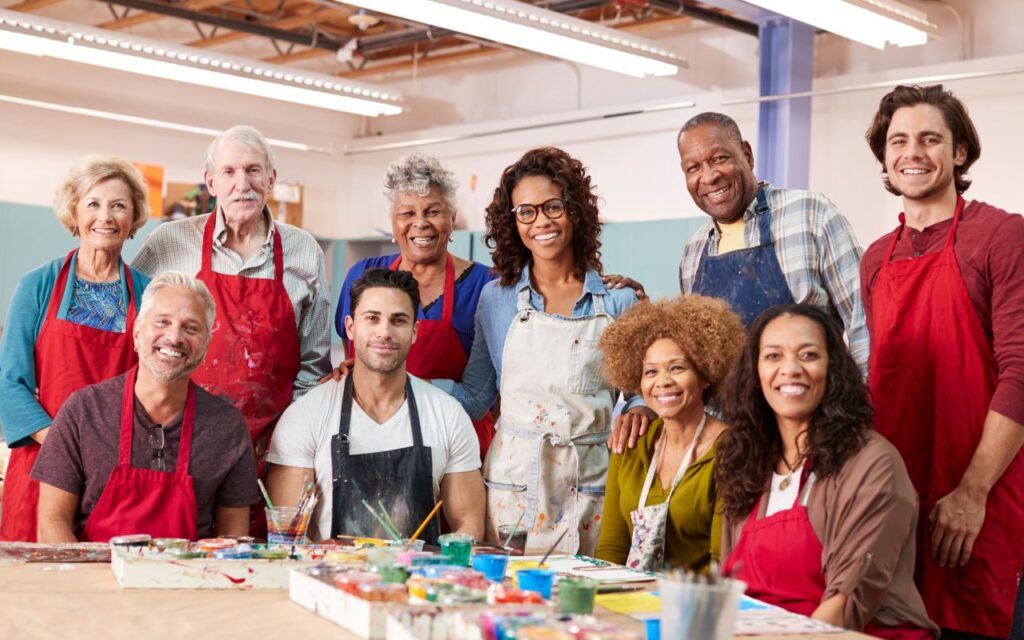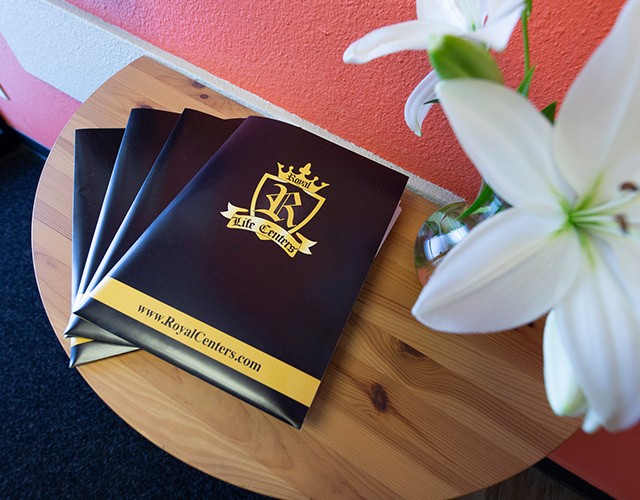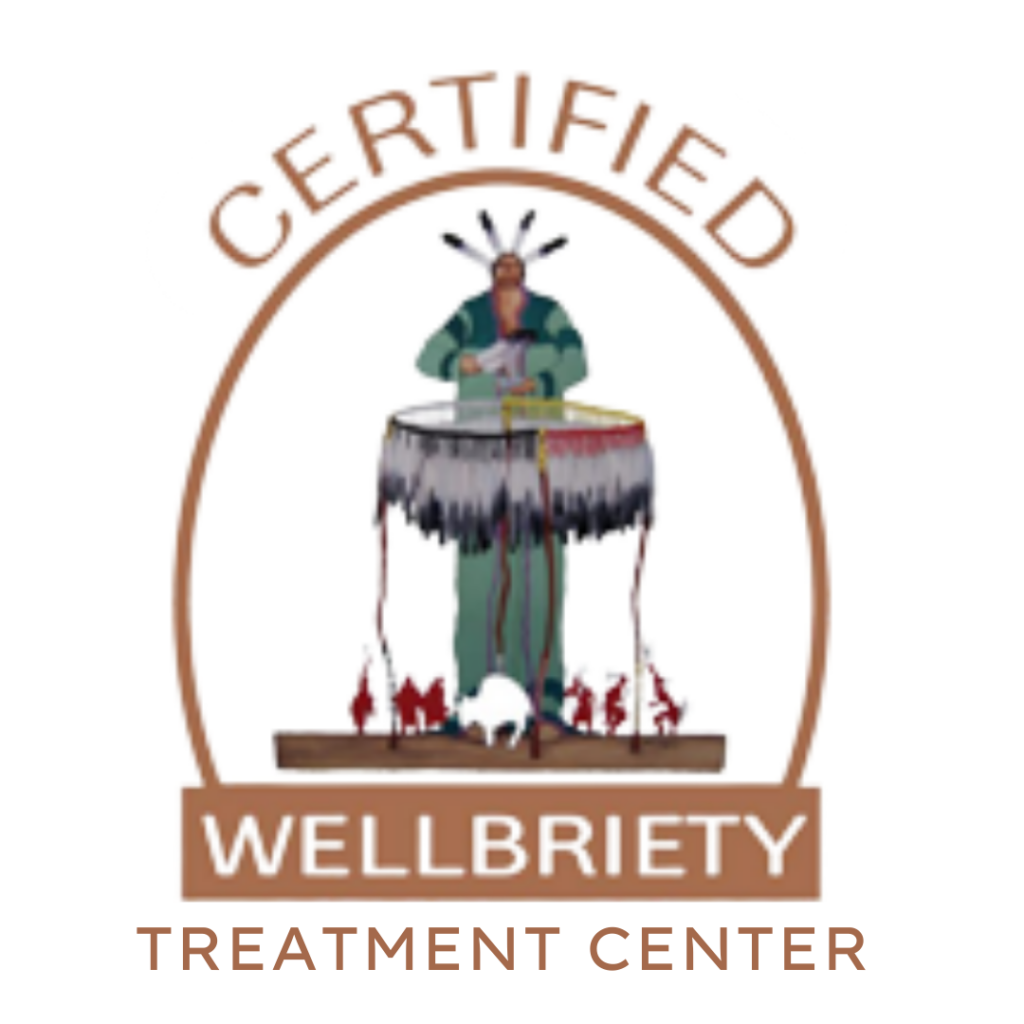Expressive Arts Therapy
While recovering from addiction is a challenging feat, the desire to create, grow, and prosper is powerful enough to guide people along the path to recovery. For this reason, offering expressive arts therapy services can be incredibly beneficial.
Through the use of creative self-expression, people can explore their emotions and thoughts, develop self-awareness, gain a better understanding of themselves, foster insight into their own recovery process, and increase their inner motivation to change their behaviors in treatment and recovery.

What Is Expressive Arts Therapy?
Expressive arts therapy, also called art therapy or expressive therapy, is an experiential, hands-on form of therapy that utilizes creative expression in the process of recovery. Expressive arts therapy has proven to have positive results in the treatment of addiction. But more than only treating substance use disorder (SUD), it can also help heal co-occurring mental health issues that often go hand-in-hand with addiction, like clinical depression, bipolar disorder, generalized anxiety, post-traumatic stress disorder (PTSD), obsessive-compulsive disorder (OCD) and eating disorders.
Art therapy’s sensory approach to healing makes it an effective treatment for people who have difficulty opening up about their feelings in traditional psychotherapy (also known as talk therapy). It can be hard for individuals to speak freely in a group, or even individual, therapy setting. A key breakthrough of expressive therapy is how unconscious pain and unresolved feelings will often surface within a person’s art, or during the process of creating it. After accessing these thoughts and memories, healing may seem more manageable because the individual is now aware of where the trauma lies; at this point, those in therapy can work with their therapists to unpack the bottled-up pain.
A key part of expressive arts therapy is starting with a safe, welcoming space that feels conducive to creativity. Individuals partaking in this form of experiential healing need to feel like they’re preparing to let out their creative expression rather than entering into a therapy session. When the right therapeutic environment is achieved, they’re more likely to let their guard down and open the windows of recovery.
How Does Expressive Arts Therapy Work?
Expressive arts therapists use activities and other creative outlets to help people identify underlying emotions that are often difficult to verbalize. In general, activities that evoke a sense of creativity and encourage the act of self-expression can be utilized as a therapeutic force for healing a growth.
According to Trauma and Expressive Arts Therapy Specialist, Cathy Malchiodi, expressive arts therapy is typically divided into four main parts including:
- Movement
- Sound
- Storytelling
- Silence
The four parts of expressive arts therapy all possess different qualities that help with healing the self from addiction. For example, movement relies heavily on physical touch and can be used to express emotion through motion whereas sound utilizes music as a tool for regulating emotions and releasing tension. Storytelling engages the mind’s creative power through written narratives, allowing individuals to re-frame experiences whereas silence allows space for one to find peace within themselves and establish a connection with meditative forms of therapy.
By engaging in creative activities that evoke the four aspects of self-expression, guests can gain insights into their own behavior and the root causes of their addiction. For this reason, engaging in expressive arts therapy during treatment for addiction can help people work through issues that may be hard for them to express verbally, such as trauma or fear.
Change your life with one call.
You can do it, We can help.
Types of Expressive Arts Therapies
Expressive art therapy’s multimodal treatment method combines a variety of therapeutic activities into individual and group sessions to address people’s mental, spiritual, and physical well-being.
Expressive arts therapy utilizes a combination of therapeutic modalities such as:
- Art therapy
- Music therapy
- Writing therapy
- Dance/movement therapy
- Mindfulness meditation
Through the use of creative activities, expressive arts therapy provides guests with the opportunity to gain insight into their thoughts, feelings, and behaviors. Ultimately, expressive arts therapy helps create a safe space to explore one’s inner and outer world, allowing for more meaningful connections.
It is important to remember that this type of therapy offers a unique way to approach healing and work through personal struggles. While not everyone will necessarily find expressive arts therapy immediately beneficial, it can provide valuable insight into one’s self-understanding and offer opportunities for growth and transformation.
Art Therapy
Art therapy generally takes the route of more traditional art forms, like painting, drawing, or sculpting. Expressive art has been shown to be incredibly soothing and time-passing; individuals may discover they’ve been passively coloring or drawing and have brought to light a deeper level of their psyche they should focus on more in their therapeutic healing.
Art therapy includes but is not limited to:
- Painting
- Painting Sculpture
- Drawing
- Photography
- Paper mâché
- Collages
- Coloring
Art therapy can play an important role in the healing process by providing a means for self-expression and reflection, which can be an invaluable tool in understanding the causes of addiction and how to better cope with them. For instance, art allows for creative problem-solving that can help the individual develop healthier coping skills in order to prevent relapse from occurring.
By utilizing creativity to express emotions in an environment free from judgment or criticism, our guests can explore their feelings more freely and find relief and healing. Art therapy can also help to reduce stress, anxiety, and depression, all of which can contribute to addiction.
Music Therapy
Music therapy is a method used to help individuals of all ages and backgrounds who are facing physical, mental, social, or emotional challenges. These activities can help improve overall quality of life by aiding in communication, relaxation, and exploration.
Music therapy includes but is not limited to:
- Instrument-playing
- Singing
- Songwriting
- Composing
Through music therapy, individuals can engage in activities such as singing songs they’re familiar with, creating their own compositions, playing instruments, and even dancing. Music therapists are specifically trained to use music in an intentional way that helps meet individual needs. While in treatment, music therapy activities can include improvisation, lyric analysis, playing instruments, songwriting, and learning new pieces of music.
Our outpatient programs are especially capable of offering music therapy due to our in-house, fully equipped recording studios, Sober Studios. This space is available to guests who participate in music therapy sessions. Sober Studios provides them with physical representations of their creative expression in the same way traditional art does.
Writing Therapy
People sometimes consider themselves unartistic and hesitate to go outside of their comfort zone with more outwardly expressive art forms. Yet, writing and journaling are personal activities that even people without creative backgrounds can feel comfortable doing.
Writing therapy includes but is not limited to:
- Journaling
- Storytelling
- Poetry
- Scripts
- Fiction and memoir
Writing therapy activities can not only provide emotional relief when you feel overwhelmed but they can also be incredibly calming for the mind regardless of your mood. For instance, gratitude journal prompts and daily positive affirmations can reframe your mindset and develop a more positive perspective in life.
Similarly, taking the time to write about your thoughts, feelings, and experiences can help provide clarity moving forward and act as proof of your progress in recovery. Likewise, mindfulness journaling practices can you reflect on your life from an objective point of view, which can help you understand and process painful events in your past.
Dance/Movement Therapy
While traditional therapies often focus on healing the mind, the health of the body is just as important. Expressive dance and movement therapies help foster a mind-body connection that targets holistic restoration. For example, movement therapy is a great option for anyone needing to release pent-up stress or anger in healthy ways.
Dance and movement therapy includes but is not limited to:
- Dance techniques
- Yoga positions
- Stretches
As trained counselors teach guests dance and movement techniques, they are able to develop basic forms of non-verbal communication. During these groups, guests learn to use the expression of body movements as a form of self-expression and communication instead of solely relying on verbal communication.
Movement therapies can serve as a way to move through fear and learn how to manage emotions more effectively. Addiction counselors also help guests rebuild their self-esteem through movement therapy, helping create a positive connection between mind, body, and soul.
Dance/movement therapy is best known for its physical benefits such as improved coordination and balance, but the practice also encourages individuals to become mindful of their breath, posture, and body awareness.
Would you like more information?
If you or someone you know has a substance use disorder, we hope you’ll begin your journey with us at Royal Life Centers.
What Are the Parameters for Successful Art Therapy Sessions?
Art is all about creative expression, so group members must be ready to tap into their feelings and emotions on some level, even privately. During expressive art therapy groups, guests must also be willing to begin the act of making art in the first place and get past the idea that they’re not creative.
People need to be willing to use their bodies in a wide variety of movements, whether that be dance steps, hand motions, or other body movements. To receive the benefits of expressive arts therapy, participants must be ready to abandon the idea that they have to be rational instead of imaginative. Unlocking these requirements soon brings a sense of freedom and becomes an enjoyable part of the creative process!
What Are The Benefits of Expressive Arts Therapy?
The therapeutic value of expressive arts therapy lies within its ability to go beyond traditional talk therapy by providing an opportunity for people to express themselves through creative activities such as painting, drawing, writing, sculpting, dancing, and music-making.
These artistic activities provide a wide variety of restorative benefits including:
- Promote self-exploration and mindfulness
- Rebuild strength and physical health
- Improve cognitive functioning
- Enhance emotional resilience
- Establish healthy communication
Expressive arts therapy incorporates acts of self-expression and practical applications of healthy coping skills and relaxation techniques. In turn, these expressive activities organically guide people in building confidence, processing emotions, and creating meaning out of traumatic events.
Mindfulness and Self-Exploration
For individuals in recovery, it is important for them to find creative outlets that can open up a space of exploration and understanding. By utilizing expressive arts therapy techniques, they are able to recognize the power of their own story and gain insight into how they’re feeling at that moment.
Likewise, expressive arts therapy allows individuals to identify and understand values that are important to them, helping them live a life with greater meaning and purpose. For this reason, guests discover deeper levels of self-awareness and personal connection as they explore different kinds of creative expression.
Rebuild Strength and Physical Health
Expressive arts therapy can help individuals in recovery regain their physical strength and heal the body from the effects of addiction. Through dance and yoga, for example, individuals can learn physical relaxation techniques that build muscle while reducing symptoms of stress and tension.
Not only do these activities meet the CDC’s recommendation for daily movement, but they can also increase energy levels, reduce pain, develop body awareness, improve motor skills, increase relaxation, and promote better sleep.
Improve Cognitive Functioning
Creative expression can contribute to improved cognitive functioning by helping individuals to express their thoughts and feelings in a constructive manner. Working on creative projects can also help individuals to better focus and concentrate. By providing an engaging outlet for ideas, individuals can channel their energy into making something new and exciting.
Drawing, painting, and writing provide an engaging outlet for ideas which can help people stay focused on particular tasks by stimulating their attention span and impulse control. In general, Working on creative projects is an excellent way to exercise mental agility, problem-solving skills, and knowledge acquisition.
Enhance Emotional Resilience
Moreover, creative activities can be used to help individuals build self-esteem and emotional resilience. Making art is a great way to gain insight into one’s thoughts, feelings, and emotions and gain a better understanding of oneself. Likewise, artistic forms of self-expression can be a great way to express feelings of anger or sadness without engaging in dangerous behaviors.
By engaging in this type of therapy, individuals can also discover new ways to cope with stress and emotional triggers. As a result, guests gain the ability to regulate their emotions so that they can make healthier choices for themselves and become more resilient to life’s hardships.
Establish Healthy Communication
This form of therapy is particularly helpful for individuals who find it difficult to verbalize their emotions, allowing them to explore deeper layers of the self with less fear and anxiety.
By focusing on creative expression rather than verbal discussion, clients can break down barriers that prevent them from sharing important parts of their stories. Through the process of making art or performing, clients can express themselves in ways that are more comfortable and authentic.
Looking for a Rehab for Substance Use Disorder?

What To Expect In Expressive Arts Therapy
As a proven method for addiction treatment and other mental health concerns, expressive activity therapy opens up dialogue in a safe, sometimes non-verbal space. This experiential treatment is perfect for people who are on the road to recovery but don’t know how to begin the next stage of mental healing.
During expressive arts therapy, counselors encourage those who have experienced their fair share of pain to be open and demonstrative when they likely want to close into themselves. These creative activities gently prompt you to remain open through the use of creative expression.
Through treatment, the expressive therapy model helps people tap into a pure, childlike desire to create. While people may not initially realize the immensely positive impact self-expression has, the wondrous feeling of creativity and community is palpable. Through this, you are able to feel liberated in a way that fosters feelings of acceptance and support.
Expressive Arts Therapy Programs at Royal Life Centers
At Royal Life Centers, we offer a wide range of traditional therapies as well as art therapy, music therapy, writing and journaling therapy, and movement therapy. These expressive arts therapies promote our biopsychosocial-spiritual model of recovery, focusing equally on your mind, body, and spirit. If you would like to learn more about any of our person-centered expressive arts therapy programs, please reach out today. Our team of addiction recovery specialists is here to walk you through every step of your sobriety journey.
Looking for Art Therapy in Rehab?
If you or someone who cares about struggles with addiction, please reach out to us to find out more about how our expressive arts therapy services can help. We work with most private insurance policies and we have affordable self-pay rates if you do not have insurance. Give us a call and we will figure out the best treatment plan for you or your loved one.
Because We Care.



















